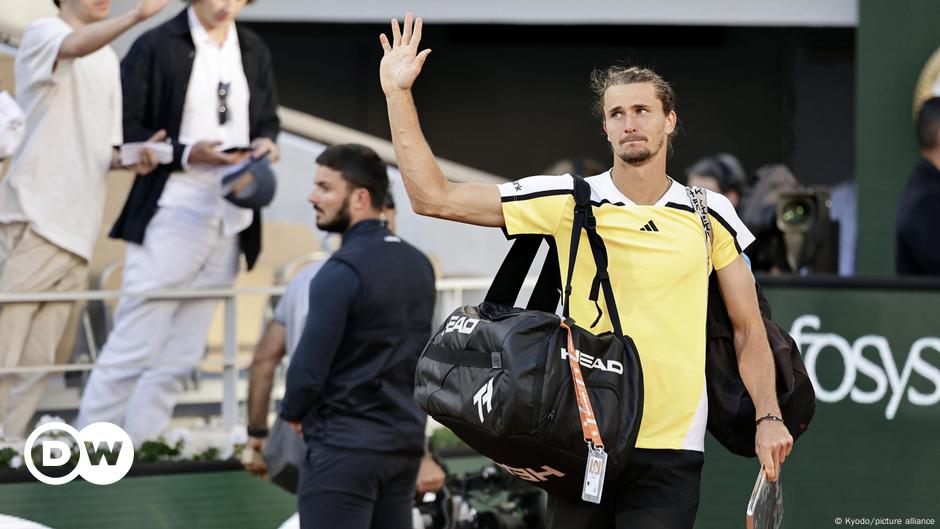Heading into the 2025 Australian Open, Germany’s tennis stars are aging and performing at Grand Slams other than men’s world no. 2, Alexander Zverev, has been nothing much to write home about. Last year, three German men ranked in the top 100 not named Zverev failed to advance beyond the second round. No German women advanced beyond the second round, although like France and the UK, they also have three players ranked in the top 100. However, Germany has only four men in the top 100. France has 12 and Spain has six. Something has to give.
“There were waves in which we had more players in the top 100 and then less. We’re not happy with the current situation overall, but it’s definitely important to have Alex [Zverev] “Number two in the world,” Veronika Rucker, president of the German Tennis Association (DTB), told DW.
“But the overall picture is something we need to improve on. Our average age at the top is also relatively high [28 years]“If we want to be on top of the world in the long term, we have to act now so that we can reap the benefits of this work over the next eight years.”
With the help of more than 80 experts and comparative work over six months, the DTB has established a new strategic approach to competitive tennis that aims to improve Germany’s position at the top of the sport. This included comparisons with other countries and resulted in a focus on eight areas, such as talent development and dual careers.
Noting that tennis in Germany is generally in good shape – the DTB revealed in its annual report that for the fourth consecutive year, the number of tennis players in Germany has increased, with approximately 1.5 million members playing in clubs of less than 9,000. The key comes in converting that interest into more competitive players.
“I think the data shows that there is still interest in tennis in Germany, so the potential for talent is really quite good,” Rucker said.
“What we need to change is how long we support players in their development. I think our talent selection is probably a little early. I can’t tell how much potential a kid has if I would only look at them selectively. What we need to do is spend more time looking at the development of players and basically focus more on development than results,” Rucker said. But it shouldn’t depend on where the player grew up. Is.
A host of challenges for young hopefuls
This is made more difficult by the increased focus on results in many youth sports, but also by how challenging it is to incorporate competitive sport into a busy teen’s life.
“A digital school would be great for us,” Rucker said. Tennis is a travel-heavy sport, and the tournament circuit in youth tennis runs from Tuesday to Sunday week after week. Even though our talents would really like to go to school, it is a real challenge for children to keep up with the current competition calendar. We need more compatibility between school and professional sports, but frankly it’s really unfortunate that as a society we’re not in a better position digitally after the pandemic.”
German tennis plans to have 8 to 10 players in the world top 100, 10 women under 21 in the top 400 and 10 men under 23 in the top 500 by 2032.
“It’s ambitious, but we have to set these goals for ourselves if we want to remain world-class,” Rucker said.
Germany’s women appear to be even closer to reaching the above goals, thanks to the emergence of some young stars as well as the efforts of Angelique Kerber as a mentor and her former coach Torben Beltz to improve the transition to the professional game. Going to arrive.
redefining success
Zverev, who has been in the headlines for all the wrong reasons over the last 12 months, is clearly the face of tennis in Germany. But after losing the finals of both the 2020 US Open and 2024 French Open, the 27-year-old is being seen as a player who may have less chance of winning a major. Rucker would clearly welcome a Grand Slam for the Germany star, perhaps because of what that success does for the next generation.
“Role models in sports have a big impact on kids,” Rucker said. They then think: I also want to get on the court and am willing to sacrifice a lot to get there, because it is a difficult and long road. Top. We need role models for those who are at the beginning of their tennis careers, but also for those who are already active in tennis.”
A first Grand Slam singles title in seven years would be huge for German tennis, but success is relative for a nation working to get back to previous heights.
“How long has it been since the men’s national soccer team last won a tournament? We can’t fall into a hole every time we don’t win a tournament,” Rucker said.
“The competition is getting bigger and other countries have also joined in. I think many of the people who criticize us from outside have no idea how hard work and difficult the path is to get to the top. Now look at the Australian Open, a lot of our players had to travel there before Christmas, which meant they didn’t even get to spend Christmas or New Year’s Eve with their families, I think a lot of them. People don’t understand what it means to be a professional athlete Are [Zverev] There is none. No. 2 in the world, but everyone talks about the fact that she hasn’t won a Grand Slam title yet. Sometimes I think we’re being a little ungrateful when we talk about success.”
Edited by: Chuck Penfold






Leave a Reply